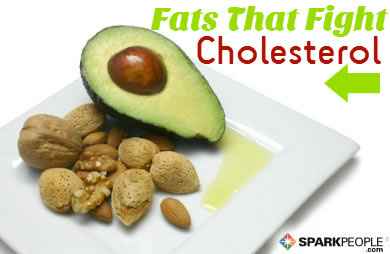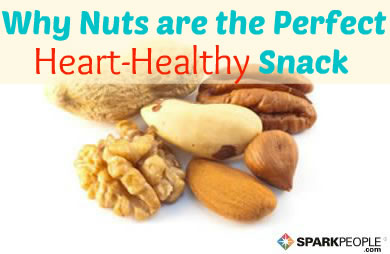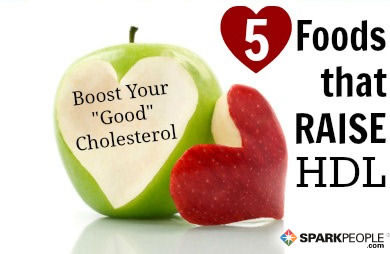
Conduct a quick Google search, and you’ll find miraculous claims about a tropical fat that has become increasingly popular among health-conscious consumers in recent years: coconut oil. Health claims about the oil's ability to help you burn fat, boost your memory, improve your heart health—and even prevent sunburn—abound. Many trusted talk-show hosts and ''wellness experts'' have touted coconut oil as nature's ''miracle'' food.
In contrast, many other health and nutrition experts disagree. Coconut oil has long been on the list of ''unhealthy'' fats due to its high saturated fat content.
So, whom should you believe?
Before you twist off the lid on a new jar, here are the real, unbiased—and research-supported—facts about coconut oil.
In a (Coco)nut Shell: The Condensed Story of Coconut Oil
People make a lot of claims about coconut oil, but there is no well-designed, peer-reviewed, credible scientific evidence to show that coconut oil speeds metabolism, promotes weight loss, cures Alzheimer’s disease, improves brain function, or improves heart health. In addition, no evidence exists to prove that ''virgin'' coconut oil is any less damaging to your heart than other varieties.
Nutritionally speaking, coconut oil contains 9 calories per gram, as do all other fats, making it a calorie-dense food. Dietary fat from all sources should make up no more than 35% of your daily calorie intake. Probably more importantly—and where the controversy lies—is that more than 90% of the fat in coconut oil is saturated fat. Decades of research have determined that saturated fat is detrimental to the health of your heart and blood vessels (more on that later). That's why healthy adults are advised to consume no more than 10% of their calories in the form of saturated fats. (For people with heart disease--or at high risk for developing it--that amount is even lower: Less than 7% of their calories should come from saturated fat each day.)
So, how would coconut oil fit into those guidelines? For a SparkPeople member following a diet of 1,200-1,550 calories per day, their upper limit of saturated fat is 17 grams daily. A single tablespoon of coconut oil contains about 12 grams of saturated fat (and 117 calories) and would bring someone very close to that upper limit—without eating any other sources of saturated fat.
If you like the flavor or texture that coconut oil provides in cooking, go ahead and use it—but only in moderation. Use it just like you would any other high-fat cooking ingredient, such as oil or butter—in small, not copious, amounts. As always, measure how much you use, and track your food intake on SparkPeople's free Nutrition Tracker. Keep an eye on your total calories, fat—and saturated fat—intake to make sure all are within your recommended ranges.
Coconut Oil Can Be Confusing If You're Not a Chemist
When we consume plant and animal sources of fat, we also eat their fatty acids, all of which are structurally different. For example, some of the fatty acids in butter and milk fat have a short chain length of 4-6 carbons. Coconut oil contains fats with 12-14 carbons, animal fats have some longer carbon chains with 16-20 carbons, and peanut oil has 20-22 carbons in some of its fatty acid chains. While there is no exact definition as to the number of carbons needed to be classified as a short-, medium- or long-chain fatty acid, most researchers define ''medium-chain'' as somewhere between 6 and 14 carbons.
We know that fats with medium chains (called medium-chain triglycerides or ''MCTs'') are metabolized much differently than fats with shorter and longer carbon chains. When consumed, MCTs are transported directly from your intestines to the liver, where they are more likely to be burned as fuel, as opposed to shorter and longer chains, which typically get stored as fat in the body. MCTs require fewer enzymes and bile acids for digestion, too.
So, where can you get these amazing MCTs? Many people claim they're found in coconut oil, but that is only a half-truth. No source of food is ''purely'' any single type of fat. Even olive oil, touted for its heart-healthy monounsaturated fat content, also contains small amounts of saturated fat, for example; it's just that most of the fat is the healthy kind. Similarly, foods contain a blend of short-, medium- and long-chain fats. No single source of MCT is available—it's only manufactured and used in medical or research settings.
Many people who make positive health claims about coconut oil are actually using research on medical-grade MCT oil, which is not available as a dominant source of fat in any food. It's true that MCT can be distilled fromcoconut oil, but it is not the same thing as the coconut oil you buy in a jar at the store. Chemically speaking, these two oils are very different.
MCT oil comprises caprylic acid (8 carbons) and capric acid (10 carbons). Therefore 99.9% of MCT oil composition comes from medium chain fats. On the other hand, coconut oil only contains about 10%-15% of these MCTs (caprylic acid and capric acid). Lauric acid (a 12-carbon chain) makes up 45%-50% of coconut oil. The remaining fatty acids in coconut oil include caproic acid (6 carbons), myristic acid (14 carbons), palmitic acid (16 carbons), and stearic acid (18 carbons)
The Research on MCT
Some research done on humans shows that substituting the distilled MCT oil for long-chain fats found in meats, fish oils, and vegetable oils can result in a short-term increase in metabolic rate and increased satiety for the calories consumed. This is one factor that could result in weight loss. So, MCT oil does appear to be slimming when used with other weight-loss interventions.
However, to imply that the research data from a study on MCT also applies to coconut oil is erroneous and a misinterpretation of the data. The carbon chain make-up of MCT oil and coconut oil is entirely different, as shown in the chemistry lesson above. Caprylic acid and capric acid make up 99.9% of MCT oil, and only 10%-15% of coconut oil.
Also, coconut oil’s main fatty acid is lauric acid. This fatty acid, along with coconut oil’s myristic and palmitic acids, have been shown to markedly raise LDL (''bad'') cholesterol.
A Word on Saturated Fat
More and more people are questioning what we once thought about saturated fat: that all saturated fat is bad for you. It's true that nutrition science is ever-evolving; the research and knowledge regarding saturated fat has really grown in recent years. So, who is right?
We now know that different types of saturated fat can affect the body differently. Previously, all saturated fats were considered the same, but research now shows that the saturated fats in coconut oil are somewhat different from the saturated fats in meat and butter, and might therefore affect the body differently. However, researchers still don’t know for sure that this makes coconut oil good for your heart. Some studies suggest that some types of saturated fat might lower risk factors for heart disease, and other studies show the exact opposite. Until we know for certain, it is still best to be cautious and keep your total saturated fat intake at or below 10% of your daily calories.
What about Populations That Eat Diets High in Coconut Oil?
One study conducted many years ago on two Polynesian islands (Pukapuka Islands and Tokelau Islands) found that the consumption of coconuts was remarkably high, making up 34%-63% of the total calories of the populations. Since coconut oil is highly saturated, it is not surprising that the blood cholesterol levels in the islanders were elevated. Yet, the researchers noted that cardiovascular disease was uncommon.
However, this claim was based on a single electrocardiogram (ECG) test, not on death or autopsy. And it is important to note that the ECG is not considered a reliable way to assess cardiovascular health. Also realize that these populations had a low intake of sugar, cholesterol and salt in their diets, and consumed far more fiber, plant sterols, and omega-3 fatty acids from fish. They also had a more active lifestyle and used little tobacco. This study is often used to promote the use of coconut oil, but the study is very limited in its actual application, and it was not a well-controlled study. Plus, as we all remember from sixth-grade science: Correlation does not prove causation. If these islanders were, in fact, healthier and at low risk of heart disease (which wasn't necessarily proven, remember), there is no possible way an uncontrolled study like this can attribute that result to their consumption of coconut oil. A myriad of other diet and health behaviors that impact heart health were not isolated and controlled for in this observational study
Other Coconut Products
Coconut oil isn't the only source of saturated fat. As the popularity of coconut oil increases as the result of ''paleo'' or ''caveman'' diet trends, we're seeing more and more coconut products on grocery shelves, too. You’ll need to keep a handle on other coconut products, too, as many are also high in saturated fat.
- Coconut milk, which contains the meat and liquid of coconuts and often comes canned, is rich in calories and fat. A 1/2-cup serving contains 223 calories and 24 grams of fat, 21 of which are saturated—well over one's typical upper limit for saturated fat.
- Raw, shredded coconut meat, which can be purchased as-is or cut up from a whole coconut, is often used in tropical fruit salads. A small 1/4-cup serving contains 71 calories and 7 grams of fat (6 of which are saturated).
- Dried, shredded coconut is most often found in the baking aisle or in bulk at natural foods stores. Often used in baking, smoothies or desserts, a 1/4-cup serving contains 150 calories, 15 grams of fat and 13 grams of saturated fat. You'll most often find dried and sweetened coconut at conventional grocers. Sweetened coconut is actually lower in calories and fat, since some of the fat is displaced by sweeteners. A 1/4-cup serving contains 116 calories and 8 grams of fat (7 of which are saturated).
- Coconut water, on the other hand, does not use the ''meat'' of the coconut—only the watery liquid inside. Therefore, it does not contain the calories and fat found in coconut oil or shredded coconut meat. Many athletes and fitness enthusiasts are using coconut water to rehydrate the body during exercise and endurance events. A 1-cup serving of coconut water contains 46 calories, 0.5 grams of fat, 0.4 grams of saturated fat, 600 milligrams of potassium and 252 milligrams of sodium, according to data from the USDA. But beware: Recent reports are saying that coconut water is no better than plain old water when it comes to hydration.
The Bottom Line
Don’t go cuckoo for coconut oil yet. There is not yet any credible research data that proves that coconut aids in weight loss, brain function, or heart health.
Think of coconut oil as a condiment, rather than your daily ''go-to'' oil. Remember: A little coconut oil can go a long way in adding the flavor and texture you desire to certain foodsyou’re your best to keep your total fat and saturated fat intake within the healthy range recommendations that are based on decades of research. This is the case for heart-healthy olive oil just as much as it would be for coconut oil.
Like many things in nutrition, moderation is key. Even if coconut oil were as healthy as people claim it to be, you can have too much of a good thing. This is the case for fats, proteins, fiber, water—pretty much anything you eat or drink. It's all about balance.
As always, SparkPeople will continue to evaluate the research as available to keep our recommendations and guidelines safe and effective for our members.
Sources
Cunningham, E. ''Is there science to support claims for coconut oil?,'' Journal of the American Dietetic Association.
Health.gov. ''Dietary Guidelines for Americans, 2010,'' accessed December 2012. www.Health.gov.
Kris-Etherton P.M., Innis, S., American Dietetic Association, Dietitians of Canada. ''Position of the American Dietetic Association and Dietitians of Canada: Dietary Fatty Acids,'' Journal of the American Dietetic Association.
Mahan, K. L., Escott-Stump, S. (2000). Krause's Food, Nutrition, & Diet Therapy, 10th Edition. Philadelphia, PA: W.B. Saunders.
National Heart, Lung, and Blood Institute (NHLBI). ''Fats and Oils to Choose,'' accessed December 2012. www.nhlbi.nih.gov
Natural Medicines Comprehensive Database. ''Coconut Oil,'' accessed December 2012. www.naturaldatabase.therapeuticresearch.com.
Nicholls, S.J., Lundman, P., Harmer, J.A., Cutri, B., Griffiths, K.A., Rye, K.A., Barter, P.J., Celermajer, D.S. ''Consumption of saturated fat impairs the anti-inflammatory properties of high-density lipoproteins and endothelial function,'' Journal of the American College of Cardiology.
Prior, I.A., Davidson, F., Salmond,C.E., Czochanska, Z. ''Cholesterol, coconuts, and diet on Polynesian atolls: a natural experiment: the Pukapuka and Tokelau island studies,'' American Journal of Clinical Nutrition.
Voon, P.T., Ng, T.K., Lee, V.K., Nesaretnam, K. ''Diets high in palmitic acid (16:0), lauric and myristic acids (12:0 + 14:0), or oleic acid (18:1) do not alter postprandial or fasting plasma homocysteine and inflammatory markers in healthy Malaysian adults,'' American Journal of Clinical Nutrition.
Zelman, K. ''The great fat debate: a closer look at the controversy-questioning the validity of age-old dietary guidance,'' Journal of the American Dietetic Association.
Zhang J., Kesteloot, H. ''Differences in all-cause, cardiovascular and cancer mortality between Hong Kong and Singapore: role of nutrition,'' European Journal of Epidemiology.
Coconut Oil
The hype surrounding coconut oil in the media and among health-conscious folk over the past couple of years has been hard to ignore. Considered a staple ingredient of the popular ‘Paleo diet’ and ‘clean eating’ diet trends; hailed as the latest ‘superfood’ aiding weight loss; and heralded with anti-microbial and anti-viral properties – coconut oil has ignited controversial discussion among professionals and the public.
Accredited Practising Dietitians (APDs) try to separate the fact from the fad to nut out what place coconut oil actually has in our diets (if it has a place at all!).
What is coconut oil?
Coconut oil is extracted from coconut flesh, leaving behind the fibre, carbohydrate and protein, the extracted oil is pure fat. As we know, there are many different types of fats. The two major kinds are saturated fats (unhealthy fats that can promote heart disease) and unsaturated fats (healthy fats that can reduce your risk of heart disease). Saturated fats make up 92% of coconut oil – a higher percentage than butter. Saturated fats tend to increase your LDL (unhealthy) cholesterol in the blood and should be eaten sparingly to minimise your risk of developing heart disease.
One of the main arguments put forward by those who support coconut oil is that the saturated fat in coconut oil behaves differently to typical saturated fats, preventing any negative effects on health. The evidence states it’s not that simple. Here are the facts…
Coconut oil is particularly high in one type of saturated fatty acid (the building blocks of fats) called lauric acid. This type of fatty acid tends to mimic healthy unsaturated fats by boosting HDL (good) cholesterol. This may make it less bad than other saturated fats. However, studies show that with the consumption of coconut oil, whilst healthy HDL cholesterol levels appear to rise, so too does total cholesterol and unhealthy LDL cholesterol in the blood!1 Overall, the current evidence shows that coconut oil simply does not stack up against healthy unsaturated fats (like those found in olive oil) that lower the bad stuff whilst increasing the good stuff too.
Should I include coconut oil in my diet?
Coconut oil is very energy dense! It provides 505kJ in just one tablespoon, 92% of which is made up of saturated fatty acids. Unlike some other oils, it provides no vitamins or the polyphenol antioxidant compounds like those found in extra virgin olive oil.
There is currently not enough evidence to recommend we choose coconut oil over healthy fats such as olive or canola oils. A recent review of the existing evidence on coconut oil and heart health was conducted by the New Zealand Heart Foundation. Theacademic paper concluded that based on the current evidence, it is still preferable to use unsaturated plant oils over coconut oil. Making the switch to coconut oil is likely to lead to less favourable fat profiles and potentially increase the risk of coronary heart disease.
It is important to remember that we need to look at the whole diet for the prevention of disease. Our body’s systems are complex and require a range of different nutrients for optimal health. Our time is better spent enjoying a varied and full diet of whole foods, fruits, vegetables, legumes, grain-based foods, nuts, lean meats, fish and reduced-fat dairy, rather than focusing on a select set of so called ‘superfoods’ to boost our health. Remember, no one food provides all the nutrients we need.
DAA supports the 2013 Australian Dietary Guidelines produced by the National Health and Medical Research Council, which states Australians should avoid foods high in saturated fats and opt for foods high in polyunsaturated or monounsaturated fats. Theguidelines were developed by a team of nutrition and medical professionals through a systematic review of more than 55,000 research papers.
APD recipe tips
- Choose to cook with unsaturated oils such as olive, avocado and canola oils
- When a recipe calls for coconut cream or milk, use ‘light’ varieties and thicken with corn flour if a creamier texture is required
- Another alternative is to blend half the required amount of coconut cream/milk with evaporated milk, reducing the saturated fat content whilst still providing a subtle coconut flavour
- Experiment with other flavours, try kafir lime leaves, basil, lemongrass or ginger for an exotic flavour boost
- For people who use lots of coconut oil in their diet, put a cap on the amount you use or try blending it with some monounsaturated oils such as olive, canola or avocado oil.
APDs can decipher the fact from the fiction when it comes to nutrition. For advice tailored to your individual needs, an APD can support you to make the right decisions for your diet based on the latest evidence.
Thursday October 23, 2014
The New Zealand Heart Foundation is advising Kiwis to continue using unsaturated plant oils rather than switching to coconut oil as their main cooking oil.
Coconut oil has recently gained popularity as a result of heavy marketing in both the US and Australasia. There is widespread misinformation about the health benefits of coconut oil, with claims of it being a ‘superfood’.
In light of this, the NZ Heart Foundation recently commissioned Dr Laurence Eyres, New Zealand’s leading specialist in oils and fats, to prepare an academic paper called ‘Coconut Oil and the Heart’.
Dr Eyres has summarised the existing literature on coconut oil and its impact on heart health. He found nothing which disputes the fact that coconut oil raises cholesterol.
He concludes that the claims for coconut oil’s healthiness simply don’t stack up.
“Traditionally, coconut oil hasn’t been recommended because it is extremely high in saturated fat. This advice remains, despite the large number of marketing claims to the contrary.”
He says switching to coconut oil is likely to lead to less favourable lipid profiles and potential increased risk of coronary heart disease.
“Consumers who are using a lot of coconut oil due to the current fad would be well advised to either limit its use, or to blend in some unsaturated cold-pressed oil such as olive, avocado or canola oil. Although it may be a better choice than butter, coconut oil cannot be recommended as a suitable alternative to non-hydrogenated vegetable oils.”
Dr Eyres says the wide range of research often quoted to support the use of coconut oil is largely based on animal studies or interpreted from research on medium-chain triglyceride (MCTs) oils.
But the triglycerides in coconut oil cannot actually be classed as MCTs, which means this research is not relevant, he says.
View Q&A document on Coconut Oil and the Heart
Delvina Gorton, the NZ Heart Foundation’s National Nutrition Advisor, says occasional use of coconut oil is not a problem but it is not recommended as the main oil of choice.
“The Heart Foundation wants to let people know that, based on current evidence, it is still preferable to use unsaturated plant oils over coconut oil as their main oil,” she says.
“People are paying a lot of money to switch to coconut oil thinking it’s better for their heart, but it looks like they’d really be better off sticking with their usual oil.”
Gorton says there is only a small body of research currently available on coconut oil and its risk factors for heart disease in humans.
“In general, the evidence for the impact of coconut oil on risk factors for heart disease is poor. The limited evidence is not sufficient to change advice, and suggests that in relation to risk factors for heart disease, plant oils higher in unsaturated fatty acids remain preferable.”
She says a dietary pattern based largely on minimally processed foods and which includes plenty of vegetables and fruit, some nuts, legumes, intact whole grains, seafood and lean meats, reduced fat dairy, and healthy oils is recommended for heart health.
About Dr Laurence Eyres
Dr Eyres is a consultant to the Food Industry and New Zealand’s leading specialist in oils and fats. He has over 40 years’ experience in the New Zealand Food Industry and has Post Doctoral degrees in Industrial Chemistry and a Masters in Business (MBA) early 1980s. Since 1982 he has held Senior Management positions in Operations, Quality Management, R&D, NPD, and market development.
For more information, please contact:
Ben Chapman-Smith
Communications Advisor
09 571 4663 or 0272700691
benc@heartfoundation.org.nz
Coconut Oil vs. Olive Oil for Heart Health
By T. Jared Bunch, MD
Published Mar 3, 2015

Recently, as a cardiologist, I have been asked a lot about the heart benefits of different oils. As consumers respond to the growing array of oil options, promotion of potential health benefits of different oils has increased.
These supposed health benefits range from improved heart health, weight loss, treatment of bowel diseases such as irritable bowel syndrome and Crohn’s disease, high cholesterol management, increased energy, and reduced symptoms of chronic fatigue syndrome. Sometimes the lists of potential benefits grow so long they resemble some of the miracle elixir lists promoted centuries ago.
Right now, I want to stick with potential heart-related benefits of two oils. I’ll look carefully at coconut oil because it has received a lot of attention lately. Finally, I’ll compare it to my favorite heavyweight among oils, olive oil.
Two main types of coconut oil are virgin and refined:
- Virgin coconut oil is removed from coconut milk by a process called wet extraction, largely free of refining.
- Copra oil is extracted from dried coconut meat and requires some amount of chemical refining, bleaching, and deodorizing. This may destroy some of the oil’s compounds that promote heart health, such as phenols and antioxidants.
Most of the research into the health benefits of coconut oil both as a cooking oil and as an essential oil for skin care has been done using virgin coconut oil.
3 Health Benefits of Virgin Coconut Oil
1. It contains antioxidants that can decrease oxidative stress. Virgin coconut oils in the diet are rich in antioxidants such as flavonoids and polyphenols, which have many potential heart-health benefits. When the heart and blood vessels are exposed to a process called oxidative stress, plaques can develop in arteries, which can lead to heart attacks. Blood vessels can stiffen and cause high blood pressure; and heart failure can develop. Antioxidants help reduce oxidative stress in the body and lower inflammation.
Polyphenols reduce blood pressure in elderly people with high blood pressure, studies find. Polyphenols have also been shown to reduce the growth of atherosclerotic plaques in arteries in animal studies. Also, in animal studies, researchers have found that polyphenols can help blood vessels relax and become less stiff , preventing the early first steps in the development of high blood pressure.
2. It can reduce total and bad cholesterol. Virgin coconut oil contains both monounsaturated and polyunsaturated fats. These are healthy fats that can lower cholesterol, in particular, our triglyceride levels. Virgin coconut oils also increase enzymes, such as lipoprotein lipase, that help break down fat. In addition, virgin coconut oil increases the production of bile, which aids in our body’s digestion of and removal of fats. In animals, this leads to a lowering of the bad cholesterols (LDL, VLDL), triglycerides, and total cholesterol count.
3. It helps weight loss through increased calorie burning. Virgin coconut oil contains about 60 percent to 63 percent medium-chain fatty acids, which our bodies use as efficient energy sources. Consumption of medium-chain fatty acids increases calorie burning and thus canpromote weight loss. In a study of 20 obese men, those who consumed 30 milliliters of virgin coconut oil per week decreased their waist circumference on average 2.86 cm. This was a small study, but one that suggests we need a larger one to examine the best dose and find out if the early benefits of using virgin coconut oil are retained.
Heart-Healthy Sri Lankan’s Eat 120 Coconuts a Year
In Sri Lanka, isolated populations of people called Veddas or “forest people” largely live in protected forests. They observe a lifestyle similar to what would have been encountered thousands of years ago. Their diets largely consist of coconuts, fruits, yams, and occasional game shot with bows and arrows. The only constants in their diets are coconuts, which do not have seasonal variation, and the game they hunt. As a consequence, most of their dietary fat comes from coconuts, and to a lesser extent animals.
In a study of 207 Veddas, of which 39 percent smoked, only 3.8 percent developed high blood pressure. More importantly, after a number of cardiac tests were performed on Vedda patients, not one case of heart disease was found. It’s also important to consider that these people live a life that is not sedentary, which also is very heart-healthy. Despite this, the lack of identifiable heart disease amongst the Veddas is truly remarkable, particularly when I consider the community in which I live, where almost every family is effected by heart disease in some way.
Even in the general Sri Lankan population, where the average person eats approximately 120 coconuts per year, heart disease is relatively uncommon (1 person out of 100,000 dies of heart disease each year).
If we could get anywhere close to these numbers in the United States, I would be out of business.
Should I Use Virgin Coconut Oil or Virgin Olive Oil?
For starters, the amount of research behind the healthy heart properties of olive oil is substantially greater than that available for coconut oil. Olive oil is one of the primary components of theMediterranean diet. In a prior column I reviewed evidence on diets to prevent heart disease over the past 50 years.
Let’s break this down in a heart-healthy and heart-unhealthy analysis:
Olive oil has more “good fat,” monounsaturated and polyunsaturated fats, than virgin coconut oil. For example, 1 tablespoon of olive oil contains 11 grams (gm) of monounsaturated fat and 1 gm of polyunsaturated fat. In comparison, a tablespoon of coconut oil contains 0.1 gm of monounsaturated fat and 0.25 gm of polyunsaturated fat. In a quick analysis, olive oil has 5 to 10 times the amount of good fat we need to consume.
Olive oil has less saturated fat than coconut oil. Saturated fat, particularly from animal products, can increase our bad cholesterol (LDL), and increase risk of developing atherosclerotic plaques and coronary artery disease.
For example, 1 tablespoon of olive oil contains 1 gm of saturated fat. In comparison, 1 tablespoon of coconut oil contains 13 gm of saturated fat. In a quick analysis, coconut oil contains more than 10 times the amount of potential bad fat compared to olive oil. This analysis is not quite as simple as the other. Saturated fats from some plant-based products are not as bad as those from animal-based products. Most of the saturated fats in coconut oil comes from lauric acid, which can increase bad cholesterol (LDL) but also good cholesterol (HDL). Because it increases both good and bad cholesterol, the risk of using coconut oil may not be as significant, or even significant at all.
With any efficient food source, the amount of calories per serving becomes important. Even healthy foods consumed in excess can become unhealthy. When is comes to calories, both olive oil and coconut oil are similar. One tablespoon of olive oil contains 120 calories, compared to 130 calories in a tablespoon of coconut oil.
And the Winner Is . . .
For me, right now, olive oil is the best choice for heart health because:
Much more research supports the long-term benefits of olive oil in humans. This is not a true knock on coconut oil. The same may be true of coconut oil, but we just have to wait for the human data to come in to guide us.
The quantity of polyunsaturated and monounsaturated fats is clearly higher in olive oil. These good fats have many heart-healthy properties, including lowering inflammation, improving cholesterol, lowering risk of heart disease, and, in animals, lowering the risk of abnormal heart rhythms.
Still, if you are a coconut oil enthusiast, there is a lot to be optimistic about. Coconut oil has a lot of potential heart-health benefits, and there have been remarkable findings in people who consume a lot of coconut.
Photo credits: Jessica Boone/Getty Images; iStock Photo

While coconut oil has dragged itself out of the muck of vast misrepresentation over the past few years, it still rarely gets the appreciation it truly deserves. Not just a "good" saturated fat, coconut oil is an exceptional healing agent as well, with loads of useful health applications.
Some examples of "good" saturated fat include
- Fat-burning: Ironic, isn't it? A saturated fat which can accelerate the loss of midsection fat (the most dangerous kind). Well, there are now two solid, human studies showing just two tablespoons a day (30 ml), in both men and women, is capable of reducing belly fat within 1-3 months.
- Brain-Boosting: A now famous study, published in 2006 in the journal Neurobiology of Aging, showed that the administration of medium chain triglycerides (most plentifully found in coconut oil) in 20 subjects with Alzheimer's disease or mild cognitive impairment, resulted in significant increases in ketone bodies (within only 90 minutes after treatment) associated with measurable cognitive improvement in those with less severe cognitive dysfunction.[i]
- Clearing Head Lice: When combined with anise spray, coconut oil was found to be superior to the insecticide permethrin (.43%).[ii]
- Healing Wounds: Coconut has been used for wound healing since time immemorial. Three of the identified mechanisms behind these healing effects are its ability to accelerate re-epithelialization, improve antioxidant enzyme activity, and stimulate higher collagen cross-linking within the tissue being repaired.[iii] Coconut oil has even been shown to work synergistically with traditional treatments, such as silver sulphadizine, to speed burn wound recovery.[iv]
- NSAID Alternative: Coconut oil has been demonstrated to have anti-inflammatory, analgesic and fever-reducing properties.[v]
- Anti-Ulcer Activity: Interestingly, coconut milk (which includes coconut oil components), has been shown to be as effective as the conventional drug sucralfate as an NSAID-associated anti-ulcer agent.[vi]
- Anti-Fungal: In 2004, 52 isolates of Candida species were exposed to coconut oil. The most notorious form, Candida albicans, was found to have the highest susceptibility. Researchers remarked: "Coconut oil should be used in the treatment of fungal infections in view of emerging drug-resistant Candida species."[vii]
- Testosterone-Booster: Coconut oil was found to reduce oxidative stress in the testes of rats, resulting in significantly higher levels of testosterone.[viii]
- Reducing Swollen Prostate: Coconut oil has been found to reduce testosterone-induced benign prostate growth in rats.[ix]
- Improving Blood Lipids: Coconut oil consistently improves the LDL:HDL ratio in the blood of those who consume it. Given this effect, coconut oil can nolonger be dismissed for being 'that saturated fat which clogs the arteries.'
- Fat-Soluble Nutrient Absorption: Coconut oil was recently found to be superior to safflower oil in enhancing tomato carotenoid absorption.[x]
- Bone Health: Coconut oil has been shown to reduce oxidative stress within the bone, which may prevent structural damage in osteoporotic bone.[xi] [Note: Osteoporosis is a Myth, as presently defined by the T-Score]
|



















